Plastic is the ultimate flower sleeve material, provided that it’s properly recycled. Although proper recycling is a true challenge, Paardenkooper has managed to do so, as proven by its Recy® and Recy® Clear flower sleeves. Wim Ammerlaan of Rosa Plaza (a Dutch-Ethiopian rose grower) is one of the ‘early adopters’ who is using the recently launched Recy Clear sleeve.
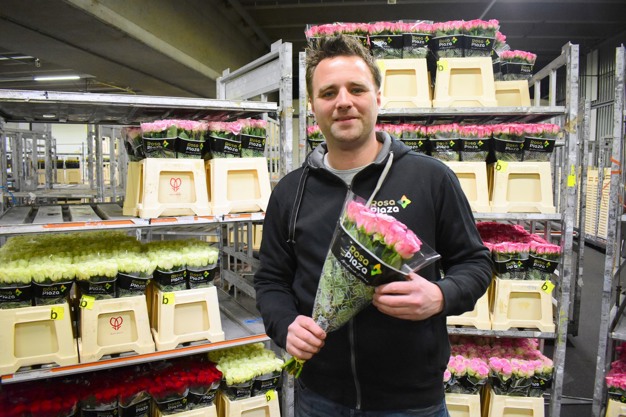
Wim Ammerlaan proudly showing the new sleeve
“For years, we have been working with Dillewijn Zwapak (now Paardekooper) to find a sleeve that is largely recycled, easy to seal, and that is strong while also being transparent,” Wim says. He uses many flower sleeves for the Rosa Plaza nurseries in Ethiopia, which have a combined area of more than 50 ha. “The Recy Clear sleeves allow us to reduce our virgin plastic usage by 70 percent.”
The Recy Clear sleeve is manufactured from so-called Post Consumer Recycled (PCR) plastic, which is completely transparent, unlike the Recy sleeve. The latter is grey but has a unique selling point: it consists of 100% recycled sleeves*, an achievement that is enabled through the collaborating efforts of the Circular Plastics Alliance parties.
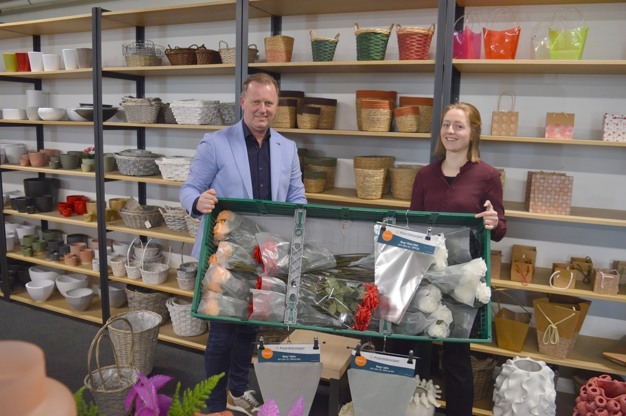
John van Berkel and Merel de Vries with Paardenkooper, presenting the different Recy and Recy Clear flower sleeves and the Eco Flowerbox FECT
Kosovo
At the Paardekooper office in Aalsmeer, John van Berkel and Merel de Vries (respectively, Business Developer and Sustainability Advisor of Paardekooper’s horticulture division**) elaborate on the sustainable flower sleeves. “Paradoxically, we’re a packaging company that seeks to reduce the amount of packaging,” John says. “The Recy and Recy Clear are concrete examples of this approach. In addition, we are concerned with shortening the supply chain and reducing our footprint. To this end, we set up a new Recy sleeve production facility in Kosovo in cooperation with our partner Kivo, a producer of PCR recycled products.”
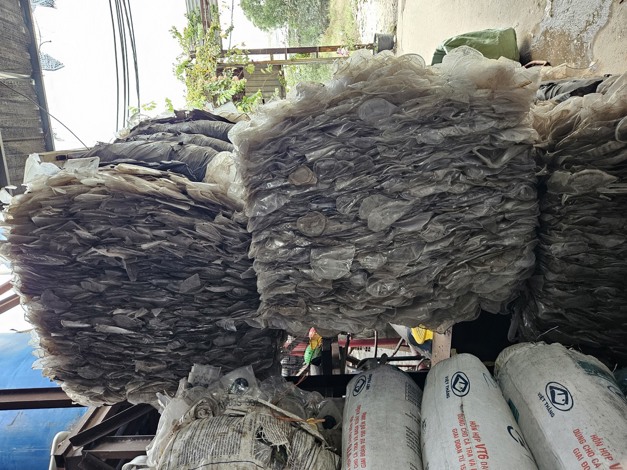
Recy Clear PCR basis material upon delivery
Currently, Paardekooper’s flower sleeves are among others produced in Vietnam, Colombia, and Kenya. The company has high hopes for its Recy and Recy Clear sleeves and the new production facility in Kosovo because the demand for sustainable packaging solutions is rapidly growing. “In Europe, legislation is becoming increasingly uniform. European legislation will require the market to obtain at least 35% of their plastic from (PCR) recycled sources. In this context, this kind of solution is increasingly in demand.”

Recy Clear foil as it leaves the factory
Frontrunners
Merel emphasizes that Paardekooper attaches great value to sustainability, saying: “As a producer, we also try to objectively assess our own products. For instance, we developed a method that shows the sustainability levels of each of our products. This allows us to determine our R&D- priorities”.
“At Paardekooper, we are committed to developing circular systems to promote the re-usage and recycling of products. For this reason, we recently launched our Eco Flowerbox FECT®, which is a sustainable alternative for single-use cardboard transport boxes.”
She also points to The Life Cycle Assessment Centre (The LCA Centre) and the LCA tool, through which Royal Paardekooper Group advices customers with regards to their sustainabilty goals and provide insights into their footprint data. “Moreover, we are a knowledge partner when it comes to (international) current and future legislation and regulations. This is especially beneficial for our non-European customers, such as those from the USA and Colombia, because Europe is at the forefront of sustainability.”
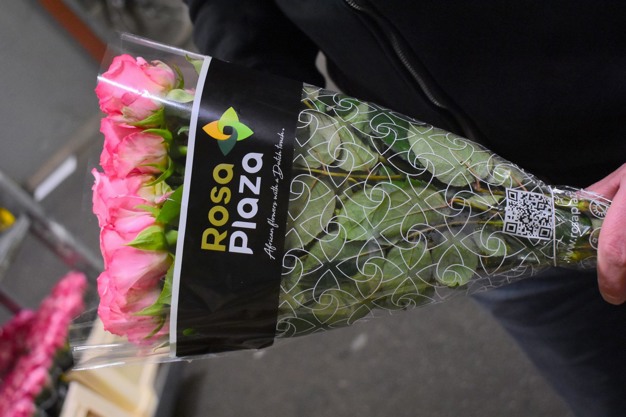
Towards PCR-only
Last week, Wim presented the new flower sleeve to his customers. Currently, the old sleeves are also being used, but this will change soon. “In the future, PCR-only sleeves may become a reality, but nowadays, it’s not feasible. It wouldn’t be strong enough; the sleeve material would resemble that of stretchy shopping bags. Let’s be honest, nobody likes to sell their flowers in this kind of material. Although we strongly encourage any increase in PRC percentages, we are very happy with the existing possibilities, as they make a real difference.”
*The PP-variant. To be distinguished from the PE variant, which consists of 40% of recycled material
** Recently, Broekhof and Dillewijn Zwapak, previously independently operating packaging companies in the floriculture sector, have been integrated into Paardekooper under the horti division. Currently, the staff has merged and operates from the new building in Aalsmeer (The Netherlands). This summer, the integration of the various ERP systems will follow. Over time, the names of Broekhof and Dillewijn Zwapak will be increasingly less used.
For more information: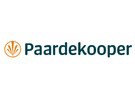 Paardekooper
Paardekooper
www.paardekooper.nl
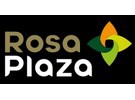 Rosa Plaza
Rosa Plaza
https://rosaplaza.nl/en/